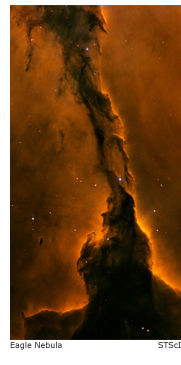Required text. Jeffrey Bennett et al. "The Cosmic Perspective: Stars, Galaxies & Cosmology" (2007, 4th edition, ISBN 0-8053-9210-6).
This was reissued as ISBN 0-321-49973-5 (2007), but the only change is to the supplemental electronic materials (not required for the course).
[Note: this is an abbreviated version of the full text "The Cosmic Perspective" (4th edition) by the same authors; it differs only by omitting the
section on the solar system. Page numbers are the same.]
 Drop Dates. You may drop a course without academic penalty until September 26. You can then drop courses until October 24
with a Q or F, depending on your performance in class up to that time. October 24 is also the last day to change to or from the credit/no
credit basis. After October 24, you may drop the course or withdraw from the University only for urgent and substantiated, nonacademic
reasons. Please consult the University's published calendar (http://registrar.utexas.edu) to verify these dates and for further information.
Drop Dates. You may drop a course without academic penalty until September 26. You can then drop courses until October 24
with a Q or F, depending on your performance in class up to that time. October 24 is also the last day to change to or from the credit/no
credit basis. After October 24, you may drop the course or withdraw from the University only for urgent and substantiated, nonacademic
reasons. Please consult the University's published calendar (http://registrar.utexas.edu) to verify these dates and for further information.
Star Parties. Every Wednesday evening, if the weather is clear, there will be astronomical viewing with the 16-inch telescope
on the roof of RLM Hall. These sessions will start about 7 p.m. during standard time and 8 p.m. when daylight saving time is in effect.
There is also a 9-inch telescope on Painter Hall that is open to UT students on Friday evenings and to the general public on Saturday evenings.
For observing hours, see the Department of Astronomy public outreach Web page at
http://outreach.as.utexas.edu/public. You can use the
9-inch yourself if you are checked out on it. McDonald Observatory in west Texas has star parties and public nights
see (http://mcdonaldobservatory.org/visitors/programs; phone 471-5285).
About the Instructor: Professor Shields was born in Los Angeles and grew up in Nebraska and Kansas. He earned a B.S. in
Physics from Stanford University in 1968 and a Ph.D. in Astronomy at Caltech in 1973. Following a postdoctoral fellowship at Harvard,
he joined the UT faculty in 1974. He now holds the title of The Jane and Roland Blumberg Centennial Professor in Astronomy, and served
as Chairman of the Department of Astronomy from 1990 to 1994. He teaches both graduate and undergraduate courses at UT.
His research interests include studies of nebulae, quasars and black holes, and he has published numerous research papers and
popular articles.
Suggested reading:
--A Short History of the Universe, by Joseph Silk (1994), Scientific American Library (Freeman), ISBN 0-7167-5048-1.
A nicely illustrated summary of modern concepts of the evolution of the universe, by a leading theoretical cosmologist.
--Black Holes and Time Warps: Einstein's Outrageous Legacy, by Kip Thorne (1994), W. W. Norton & Co., ISBN 0-393-03505-0
A popular-level journey through the concepts of relativity and black holes by a leading expert.
Other Astronomy Courses. For other courses offered by the Department of Astronomy, see
https://www.as.utexas.edu or the UT Undergraduate Catalog or the UT Course Schedule
(http://registrar.utexas.edu).

